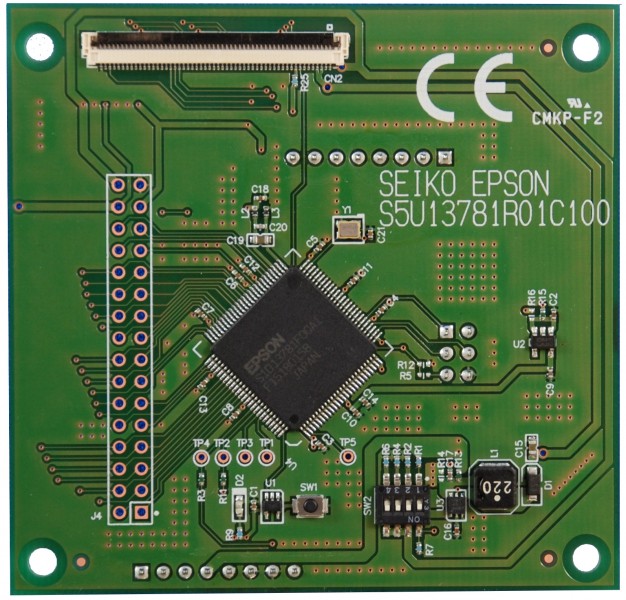Epson’s new display controller IC reference design is compatible with Arduino Due

Photo by EPSON EUROPE ELECTRONICS GmbH
Seiko Epson Corporation started supplying its latest display controller IC reference design compatible with the Arduino Due open source hardware platform. This new reference design will support the development of products using small- and medium-sized TFT LCD panels, providing significantly shorter development times and a lower cost evaluation environment.
The reference design includes an evaluation board with an integrated S1D13781 LCD controller IC manufactured by Epson and a software library providing simple graphics functions. The S1D13781 Shield TFT evaluation board is compatible with Arduino Due. Both this evaluation board and the software library were developed to be compatible with the Arduino Due environment, providing a simple hardware connection that allows the evaluation board to be powered by Arduino Due, and with simple software installation and usage. The evaluation board includes two FPC connectors (40-pin and 54-pin) that can be used to connect to separately available WQVGA (480×272 dot) or QVGA (320×240 dot) TFT panels.
The S1D13781 Shield TFT evaluation board can also be used to evaluate the low cost S1D13L01 LCD controller that shares the same features as the S1D13781, except for BitBLT functionality. The evaluation board is available for purchase from online shops from September. Sample software can be downloaded free-of-charge from Epson with user registration.
“Going forward, Epson will continue to release display controller IC reference designs,” said Kazuhiro Takenaka, deputy chief operating officer of Epson’s Microdevices Operations Division. “Our aim is to help our customers by supporting higher resolution small- and medium-sized TFT LCD panels and evaluation boards with other microcontrollers.”
For more information, please visit http://www.epson-electronics.de.
News Categories
- » NEWS HOME
- » Automation & Robotics
- » Industry 4.0
- » Material Handling
- » Sensors
- » Quality & Testing
- » Machine Vision
- » Laser & Optics
- » Metalworking
- » Motion Control & Drives
- » Hydraulics & Pneumatics
- » Process Industry
- » Renewable Energy
- » Agriculture
- » Home & Office Furniture
- » Environmental Tech




